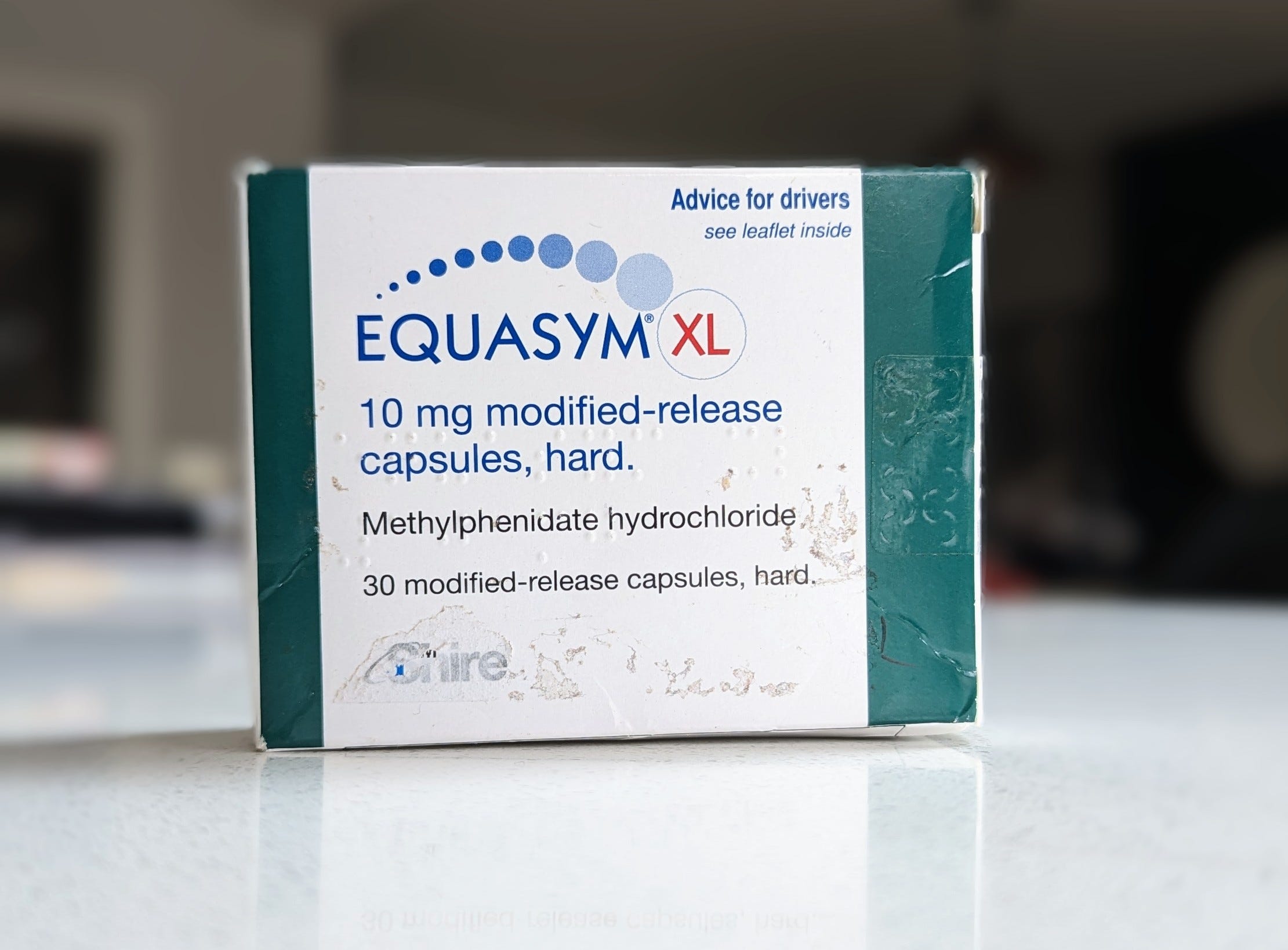Medication was never something I considered for my son. I didn’t want him doped up or a shadow of his former being. But all that is a myth with medication, and if a child (or adult) is showing these signs, then the dosage or drug is not right and needs to be checked.
Where we started
My son was diagnosed with Autism at three-and-a-half years old. We learnt all about how he saw the world and the strategies that helped to introduce routine, communicate differently and experience the world just like every other kid.
If you want to know more about autism and communication strategies and how we implemented them, click here.
As my son progressed and developed through the years, we noticed that he struggled in areas that others in his autistic peer group didn’t. Rhys never sat or remained still, ever, and even though he had developed speech, it was fast and inaudible to the general public. But what was more of a concern, was Rhys’ inability to focus, even in activities which he loved. His body and brain would not let him, meaning he struggled to move on with school or experience activities that were available to him.
These traits lead us to journey down the path to obtaining an ADHD diagnosis, and because we already were experts in communication and strategies surrounding routine, the only other option to consider, in the package of support, was medication.
ADHD unlike autism can be improved via medication, and a route we were keen to explore. If it wasn’t right for my son we would stop, but we needed to try to see if it would help him learn and progress through school.
Taking the Medication
Rhys was prescribed Methylphenidate 10mg, a stimulant drug that would increase activity in his brain and therefore increase concentration. It came in capsule form allowing us to break open the pill and sprinkle it onto his jammy toast each morning.

This was key for us, as there was no option to get Rhys to swallow a pill. Other medication had brought its own challenges in liquid form, and had been a reason an ADHD diagnosis had not been considered before, because how would Rhys take any meds?
Rhys was to have the 10g sprinkled capsule at breakfast, which would have an effect within 45 minutes. The drug would last for a period of eight hours before wearing off and returning Rhys to his previous state.
Although Methylphenidate is an instant-release drug with changes presenting themselves within the hour, we had started with a low dose, as the body does take time to adapt, so this was never going to be an instant miraculous change.
Side Effects
No medication comes without side effects, and we had not been exempt from that challenge. Any medication takes time to embed and for the body to accept, that’s why the first six weeks are a challenge.
Rhys suffered a sore tummy and headaches that left him with his head in his hands and us rubbing his tummy for comfort. We combated the pain with Capol which eased the pain and discomfort, but it also lead us to question whether having the medication every day was the right choice, leading to a few medication holidays where the days off helped his body cope with the change.
Methylphenidate, or any other stimulant, has the effect of being an appetite suppressant. Rhys would eat his breakfast and then return home from school with a full lunchbox, untouched. This wasn’t a worry, the actual challenge was how quickly I could cook an extra large pizza and have it ready from when he walked through the door, as hunger would set in quickly as the medication eased its hold.

The side effects were tough and I didn’t know if it was worth it to carry on. The paediatrician had said if there was any reason we were uncomfortable with the medication we could just stop.
The Management of Transition
Most research around ADHD, and the management of the condition, has been done with individuals who have a single diagnosis of ADHD, and not multiple diagnoses’ like my son. The combination of ADHD, Autism, SPD and Anxiety means a complex reaction to medication that is often a game of Russian roulette, not knowing what you are going to face.
One of the most challenging areas to manage was the transition as the drugs started to wear off and the feeling Rhys would feel. Any transition in the autism world is challenging, even simple ones like moving from sleep to an awake state, not to mention the move between daily activities, so a drug-related transition was something that had to be understood.

It brought hunger, distress and inevitably meltdowns. We managed it with large pizzas, a relaxed environment, his favourite television shows and all of his favourite things.
This side effect was the hardest of all to manage.
The Six Week Mark
After sore tummies and achy heads being eased by Calpol, the side effects, including the challenging afternoon transitions, all started to ease. Rhys’ body adapted to the change, and we came to a state where it was part of the everyday breakfast routine.
He was still on a low dose, but we did notice a sharper focus, an improved ability to wait in line, and a slight improvement in speech.
He is only on 10mg, a very low dose, but it made sense why we had to start in this way. The effects of a drug like Methylphenidate are largely impacting, and not something to rush into.
We now will discuss with the paediatrician our next steps, which will be an increase in dosage, and possibly another few weeks of regulation. But the positive is that the side effects were short-term, even if they did feel lengthy at the time. Rhys’ improvements were there, and we still have the same objective in mind, how we can help him focus.
Follow our journey across all social media platforms, find out more here.

